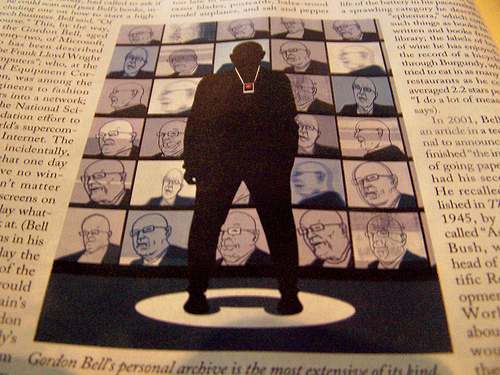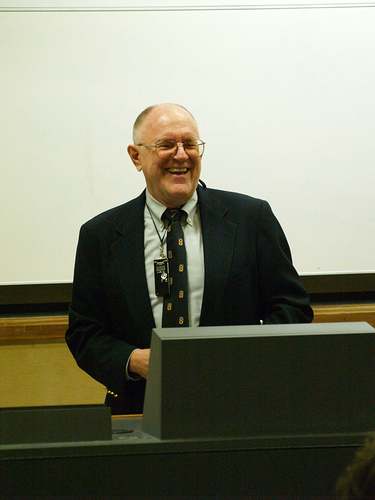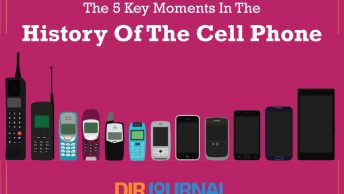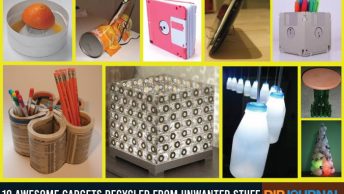
When I look back into my son’s childhood, there are specific images that flash in my mind – images of his tiny frame playing in his room, his first day at school, him walking into my office with blood all over from a bike accident and smilingly calling it tomato ketchup.
Some sad, some happy, but they are all precious. But then I regret not
remembering every single day of his growing up years. If only I could….
We do remember some things from our past but definitely not every single detail. This is where Gordon Bell is trying to ring a bell. He is part of Microsoft’s research team, a principal researcher and is working towards making sure we can remember all the special moments of our lives. He has worked as a chief engineer and vice president of research and development at Digital Equipment Corp. for 23 long years and later founded the Computer History Museum.
Bell himself wants to capture all the moments
of his life and store them on his Dell laptop.
TOTAL RECALL
He wants to be able to pull up every single picture, every conversation, every email whenever he wants. IEEE calls this idea Total Recall.

Project MyLifeBits
This project is appropriately called MyLifeBits and Bell is trying to collect as much information from his past as possible and store his life on his laptop. He wants to convert his PC into a repository, a personal memory base. He feels it is essential for all of us to hold on to every bit of our lives – and be immortal.
He is not keen of making his life public and these memories are for him alone. According to him, “A lot of people put their lives on the Web. I’m not an advocate of that,” he says, adding that he thinks revealing too much personal information online can be dangerous. “We’re not life loggers because we’re not publicly disclosing or talking about ourselves. This was built to be entirely personal, to aid the individual. You will leave a personal legacy — a record of your life.”
How did the idea come about?
This project is almost ten-years old having started in the late 90’s. At that time, Bell wanted to scan his books, articles and memos into a digital format, transforming all his paper records. It was at that point that he came across and read “The Road Ahead,” written by Bill Gates. In this book, Gates wrote about his future vision of people someday being able to record and recall everything they have ever seen or heard.
That kick-started Bell’s thought process and he wondered how much information we end up with in our life. If we can have it all, what would it cost and in what way would it be useful to us. That’s what got him started and he decided on performing an experiment on himself.
Implementation:
Bell started scanning in 1999 and in 2001; a colleague and friend at Microsoft made him see that he needed a bigger database to access information. Bell began storing more information about himself; all the CDs, all the videos of lecture he had given and all the photos he had ever taken or had with him. He then proceeded to collect images of all the web pages and television shows he has watched. He recorded phone conversations, audio and video conferences, instant messages and his emails.
He even started wearing a SenseCam digital camera around his neck that takes pictures automatically every 30 seconds or whenever someone approaches, and has been created by scientists at Microsoft Research Lab in England.
MyLifeBits software is developed by Microsoft Research team and it has the ability to record web pages along with radio and television programs.
This mountain of data is worth more than 350 gigabytes, without including the streaming audio and video, and it is a replica of his biological memory. Bell says it is better because this e-memory never forgets.
Since the project is very personal in nature, all the good and bad things about Bell’s life are recorded and Bell hasn’t felt the need to delete anything. He wants every bit of his life to stay – the good, the bad and the ugly.
Future of memories
According to bell, digitizing our memories will be standard in about 20 years. Smartphones with location awareness and inexpensive digital memory storage in the “cloud” will make this transition inevitable. Your memory may fade but your memories will not.
Bell says this will “change what it means to be human.”
He talks about this in a new book authored by himself and researcher Jim Gemmell, called “Total Recall.” Even if we don’t go to the extent Gordon Bell has, we can start storing all our special memories and immortalize them.
Here is Gordon Bell sharing his thoughts on his MyLifeBits project, later incorporated into “a far-reaching initiative at Microsoft that goes by the name “memory augmentation“.
TECHNOLOGY
If you want to know about cutting edge technology and research, check out these DIRJournal categories related to science, medicine, and technology













